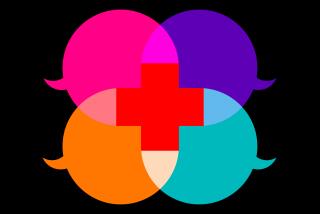Apps may help, but couch those expectations
- Share via
“We obviously believe that this technology is nothing short of life-changing,” boosts Ran Zilca, chief scientist of bLife, a Los Angeles-based company that markets the Live Happy app. But is there really any evidence that using a mood app helps?
There aren’t a whole bunch of studies yet. One, by UC Riverside psychologist Sonja Lyubomirsky, author of “The How of Happiness,” found that mood and happiness ratings went up when 327 participants used Live Happy over the course of three to 14 days — and the more the app was used, the more the ratings rose.
Since none of these apps are pricey, it probably won’t wreck your mood (for long) if you make a less-than-happy choice. But “use caution” and remember that not all apps are equal from a scientific perspective, warns Dr. John Luo, an associate clinical professor of psychiatry at UCLA. The science behind apps based on cognitive behavioral therapy is sound, but many others, such as ones that promise to rejigger your brain wave frequencies, are “questionable,” he says. If an app sounds positively wacky — maybe it is.
And remember: Apps shouldn’t replace therapy with trained professionals, if that’s needed. “We see it as a self-help tool for the general public,” says clinical psychologist Drew Erhardt, co-creator of the MoodKit app, “and as a tool to enhance therapy, not substitute for it.”
Karen Ravn






